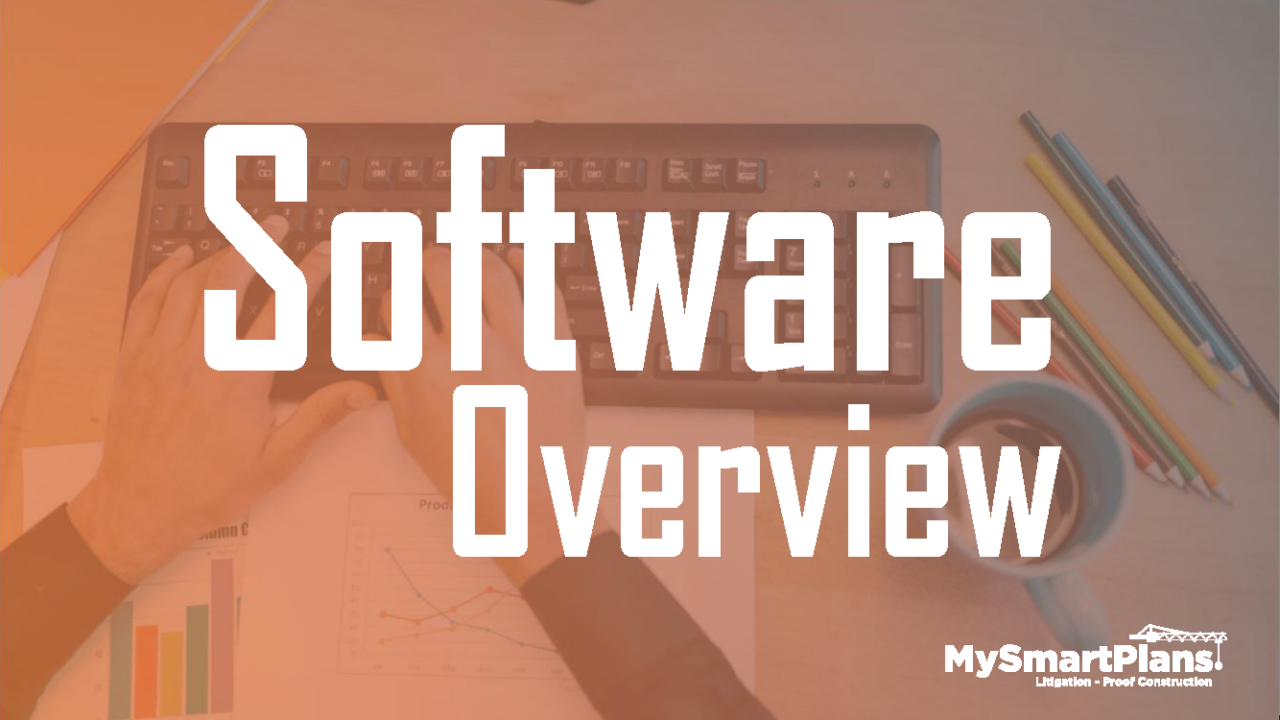MySmartPlans has saved thousands of hours in costly rework and has allowed us to collaborate with our team members in the most efficient manner possible.

Honors & Awards
Business Of The Year
Kansas Women-Owned Businesses 2017
Rule Breaker Award
New York Rule Breakers 2015
25 Outstanding Businesses Under 25 Employees
Twenty Five – 25 2012
CEO of the Year
City Union Mission 2009
Women Who Mean Business
Biz Journal 2009
Vision of Excellence
National Association of Women in Construction – 2009
About MySmartPlans

Born from Hard-Won Experience, Built for Unshakeable Control:
MySmartPlans isn’t just another software company; it’s the culmination of resilience and expertise forged in the crucible of construction chaos. Co-founders Shelley (CEO) and Dominick (President), a highly successful 45-year contractor, experienced firsthand how a single project plagued by insufficient data could unravel decades of success, forcing them to close their previous company’s doors.
They didn’t just rebuild; they reinvented construction project management to conquer the very issues that cost them dearly.
MySmartPlans delivers unparalleled project control through a unique fusion of advanced technology and dedicated human expertise. We embed an experienced Digital Information Librarian directly into your team. These specialists are far more than support; they are the catalyst for rigorous Data Governance, meticulously organizing every document and data point.
This creates radical transparency and efficiency, drastically mitigating the risks associated with poor document oversight. For 19 years, we’ve empowered clients to deliver billions of dollars in projects on time and budget, backed by an ironclad, audited project history proven to prevent costly disputes and litigation. We offer the world’s most advanced construction intelligence solution, ensuring clarity and success from groundbreaking to handover.
Honors & Awards
Business Of The Year
Kansas Women-Owned Businesses 2017
Rule Breaker Award
New York Rule Breakers 2015
25 Outstanding Businesses Under 25 Employees
Twenty Five – 25 2012
CEO of the Year
City Union Mission 2009
Women Who Mean Business
Biz Journal 2009
Vision of Excellence
National Association of Women in Construction – 2009
About MySmartPlans

Shelley Armato and Dominick Armato
Shelley is the Founder and CEO of MySmartPlans. Her husband Dominick is Co-founder and President. They suffered firsthand the effects of chaos in the industry. Dominick, a 45-year contractor, was wildly successful and one project with insufficient data caused them to shut the doors on that company. But they rose again and reinvented the construction industry by streamlining the business.
MySmartPlans is a software-as-a-service solution with an experienced digital information librarian as part of your team, who creates transparency, organization, and efficiency in construction projects. They are the driving force behind Data Governance, which mitigates the risk associated with insufficient document oversight. MySmartPlans has been improving the industry for 16 years and has a revenue aggregate of over 19 billion dollars. Build on time, on schedule, and with audited as pre-discovery files that are proven to prevent litigation!
MySmartPlans Track Record:
17 years in business
100% of our 2,130 projects were protected from litigation
$23 billion in project value completed
99.9% of projects were completed on time & on budget
18% project on-site savings
Platform Features
MySmartPlans Track Record:
17 years in business
100% of our 2,130 projects were protected from litigation
$23 billion in project value completed
99.9% of projects were completed on time & on budget
18% project on-site savings
Learn More
The MySmartPlans Manifesto
MySmartPlans has saved thousands of hours in costly rework and has allowed us to collaborate with our team members in the most efficient manner possible.

MySmartPlans helped us focus on the project rather than collection of data & documentation. The MSP team knows what needs to be included and does a great job gathering, managing and ensure timey responses on required information. It also gives us a centralized location for project documentation, giving us comfort of knowing where to find information in the future. MSP allows us to work smarter and be smarter.

Technology has made promises over the years that someday we would all be paperless and all electronic, but there has been a missing link in sharing information between groups. MySmartPlans is the medium that fills that gap.

As a construction litigator…to be able to point and click and find the documentation that relates to that specific change order, whatever, in seconds as opposed to days or weeks manually would be a game changer.

The construction industry is notorious for its complex and demanding projects. From large-scale infrastructure developments to commercial and residential buildings, construction project management plays a vital role in ensuring the successful completion of projects on time and within budget. In an industry that is constantly evolving, project managers and teams are constantly seeking new ways to streamline their processes and improve efficiency. This is where effective project management software comes into the picture.
Construction projects are multifaceted endeavors that involve coordination between various stakeholders, including architects, engineers, contractors, suppliers, and subcontractors. With so many moving parts, it is crucial to have streamlined processes in place to ensure smooth communication and collaboration throughout the project lifecycle.
Traditionally, project management in construction relied heavily on paperwork, manual calculations, and physical documentation. This approach often led to delays, miscommunication, and costly errors. However, with advancements in technology, construction project management software has emerged as a game-changer for the industry.
Project management software provides construction teams with a comprehensive suite of digital tools to plan, execute, and monitor projects effectively. By leveraging the power of automation and real-time data, these software solutions enable project managers to:
Effective communication is the backbone of any successful construction project. Project management software offers a centralized platform for teams to collaborate, share information, and track progress. With features like instant messaging, file sharing, and task management, construction project managers can ensure that all stakeholders are on the same page and work towards a common goal.
One of the biggest challenges in construction project management is resource allocation and scheduling. Project management software helps project managers optimize resource allocation by providing insights into the availability and utilization of labor, equipment, and materials. This ensures that resources are allocated efficiently, minimizing costs and maximizing productivity.
Furthermore, these software solutions enable project managers to create and manage project schedules, track critical milestones, and identify potential bottlenecks. By having a clear overview of the project timeline, project managers can make informed decisions and take proactive measures to avoid delays.
Data is power, and construction project management software empowers project managers with real-time data analysis and reporting capabilities. By capturing data at various stages of the project, these software solutions generate comprehensive reports and analytics that provide valuable insights into project performance, cost control, risk management, and quality assurance.
Project managers can leverage these insights to make data-driven decisions, identify areas for improvement, and implement strategies to mitigate risks and ensure project success.
Construction projects involve a plethora of documents, including contracts, drawings, specifications, permits, and regulatory compliance documents. Project management software simplifies document management by providing a centralized repository for storing, organizing, and accessing project-related documents.
With advanced search capabilities and version control, project managers can easily locate and review documents, streamline document workflows, and ensure that the project team has access to the latest information.
The market is flooded with construction project management software options, each offering a unique set of features and functionalities. When selecting the right software for your construction project, consider the following factors:
Choose a software solution that can scale with your project requirements. As your project grows in scope and complexity, your software should be able to accommodate increased data volumes, users, and project parameters. Look for software that offers customization options to tailor it to your specific project needs.
Construction projects involve a multitude of software applications, such as building information modeling (BIM) software, accounting software, and scheduling tools. Ensure that your project management software integrates seamlessly with these applications to avoid data silos, improve efficiency, and enhance collaboration.
Construction projects involve stakeholders with varying levels of technical expertise. Choose software that has a user-friendly interface and requires minimal training to ensure widespread adoption by your project team.
Implementing new software can be challenging, and having reliable customer support is crucial to overcome any hurdles or glitches. Look for a software provider that offers excellent customer support, training resources, and regular updates to address any issues and ensure a seamless user experience.
As the construction industry continues to evolve, so does the role of project management in ensuring cost-effective and successful project delivery. Construction project management software is set to become an indispensable tool, offering advanced features like artificial intelligence, machine learning, and virtual reality.
By harnessing these emerging technologies, project managers can optimize project planning, mitigate risks, improve collaboration between stakeholders, and deliver cost-effective projects that meet the ever-growing demands of the industry.
In conclusion, cost-effective project management in construction is critical for the success of any project. By adopting construction project management software, project managers and teams can streamline their processes, improve communication and collaboration, optimize resource allocation, and leverage real-time data analysis to drive informed decision-making. As the industry continues to embrace technology, the future of project management in construction looks promising, with software solutions paving the way for greater efficiency, sustainability, and project success.
MySmartPlans is the leading software solution for construction project management, offering transparency, organization, and efficiency to ensure on-time and on-budget completion of projects. With our experienced digital information librarians and data governance capabilities, we help mitigate risks and prevent litigation in the construction industry.
A recent Oracle article, “How AI Is Reshaping Construction,” correctly identifies the transformative potential of artificial intelligence in addressing the industry’s critical challenges of labor

What Are You Really Buying with MySmartPlans? (It’s Not Just Document Management) Discover how MySmartPlans goes beyond construction document management to deliver confidence, control, and

The Construction Data Explosion Every major construction project today operates like a massive data machine. Airports, hospitals, high-rises—these projects generate not just thousands of documents,
The only third party administered construction management platform
803 Armstrong
Kansas City, KS 66101
Phone:
(816) 221-7881
Email:
shelley@mysmartplans.com
support@mysmartplans.com

Powered By EmbedPress